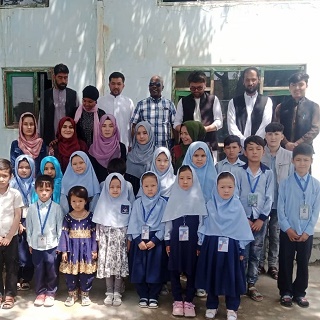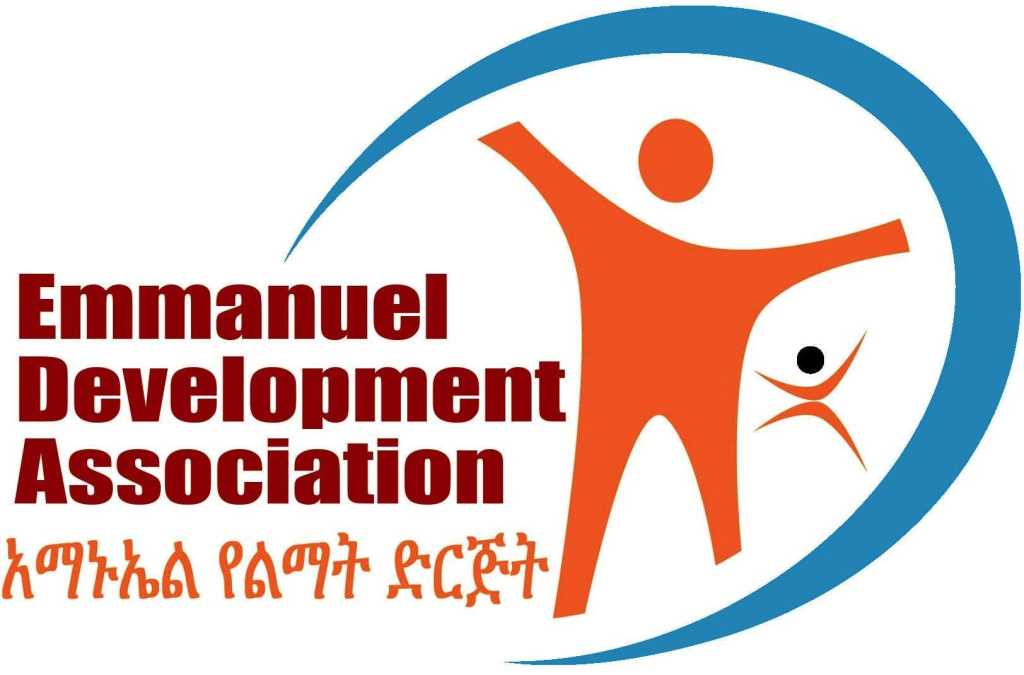Child Education and Protection
The education and protection of needy children is the primary goal of the Emmanuel Development Association. We strive to improve the education of all needy children, especially those who are orphans, vulnerable, and victims of abuse and trafficking. To date, almost 8 million Ethiopian children have benefited from high-quality EDA education programs in 116 primary schools and early childhood education centers. Our educational support services also include primary, upper primary, vocational and life skills training for at-risk children, youth, and victims of human trafficking, and basic literacy training for adults.
Our educational capacity-building programs include the construction of schools, WASH facilities, initial and ongoing training for early childhood and primary teachers, provision of books, learning materials, establishing a center of excellence for innovation and creativity on digital technologies for children, youth and playground equipment. We work in cooperation with the Ethiopian government, private institutions and as of 1997, 116 EDA schools, 28 libraries, and over 1247 communal pit latrines have been constructed and turned over to the government.

EDA also strengthens the capacity of government schools to enhance quality education in its operational areas. Over 289 primary schools in Amhara and SNNPR have been benefited from the establishment of 830 reading campuses and libraries in the community to promote reading culture and quality education for the students, youth, and communities.
Our education programs are highly successful. Since 2000 alone, almost 8 million students who were previously not in school enrolled in our primary and early childhood education centres. Grade 5 students in our programs saw an average increase in grades on national exams from 57% to 80% in one year.
Supporting Children Vulnerable to Abuse
EDA focuses on vulnerable children as a group with the lowest levels of well-being and worthy of the greatest investment. The program introduces an analytical framework that looks at the individual and environmental factors that contribute to child vulnerability, as well as the application of resilience-building into policy design with the appropriate government ministry.
EDA as a learning organization develops cross-cutting well-being strategies with a focus on vulnerable children, in order to build their resilience to overcome the range of adversities experienced from an early age. EDA believes that investing in vulnerable children is not only an investment in disadvantaged individuals, families, and communities, it is an investment in more resilient societies and inclusive economies. Since 2009, EDA has addressed and rehabilitated over 18,000 abused, trafficked, and at-risk children and youth in its operational areas.
All EDA programs follow the key indicators set by the Organization for Economic Cooperation and Development (OECD) policy recommendations which are stated in three areas for action:
1. EDA Invest in young people and places that have been left behind through
- Targeted quality childcare, early education, and life-long acquisition of skills;
- Effective access to quality health care, protection from abuse and exploitation, and risky movement in collaboration with stakeholders both at the grassroots level and regional and national levels, and
- Optimal stakeholders’ participation in the form of a community-led development approach and strategy for sustainable growth.
2. Strengthening, building efficient and responsive community members and structures through
- Integration and mainstreaming the same with the existing project and program implementation; and
- Assessing policies for their impact on inclusiveness and growth.
- Aligned policy packages across the whole system in society and stakeholders.
Strengthening Early Childhood Development
Good quality early childhood development (ECD) is pivotal for improving equitable education and lifelong learning opportunities for all. ECD refers, to organized group care outside the family for children ages 3 to 6 years to develop some skills needed for academic readiness. Over the past two decades, many actors—including the Global Partnership for Education (GPE), education ministries, civil society, non-governmental organizations, and global development partners—have contributed to supporting access to quality ECD services, including pre-primary education, in low- and middle-income countries. ECD programs and systems have been strengthened through institutional leadership, design, and implementation of curriculum, improvements to teaching qualifications and training, and advancements in data collection and research. The ECD sector has experienced widespread challenges in Ethiopia.
The government of Ethiopia has a very good policy and little has been done to implement the policy at all levels. EDA has constructed over 40 model ECD schools within the government schools’ system for replication the same by all actors, particularly the local government school system to scale up in the system. The 270 ECD teachers were trained with the necessary methodologies to adapt the interactive teaching and learning strategies and approaches.
